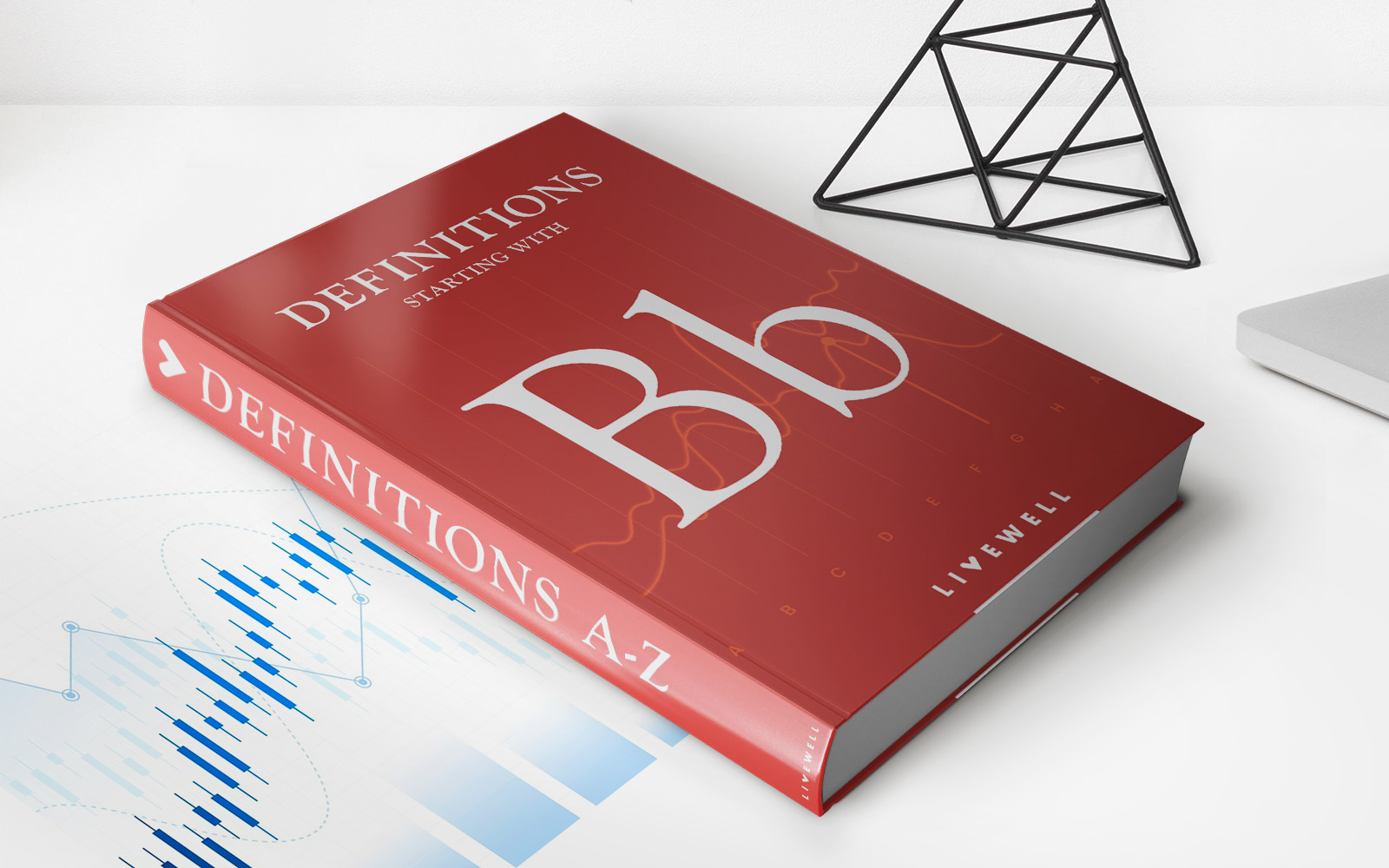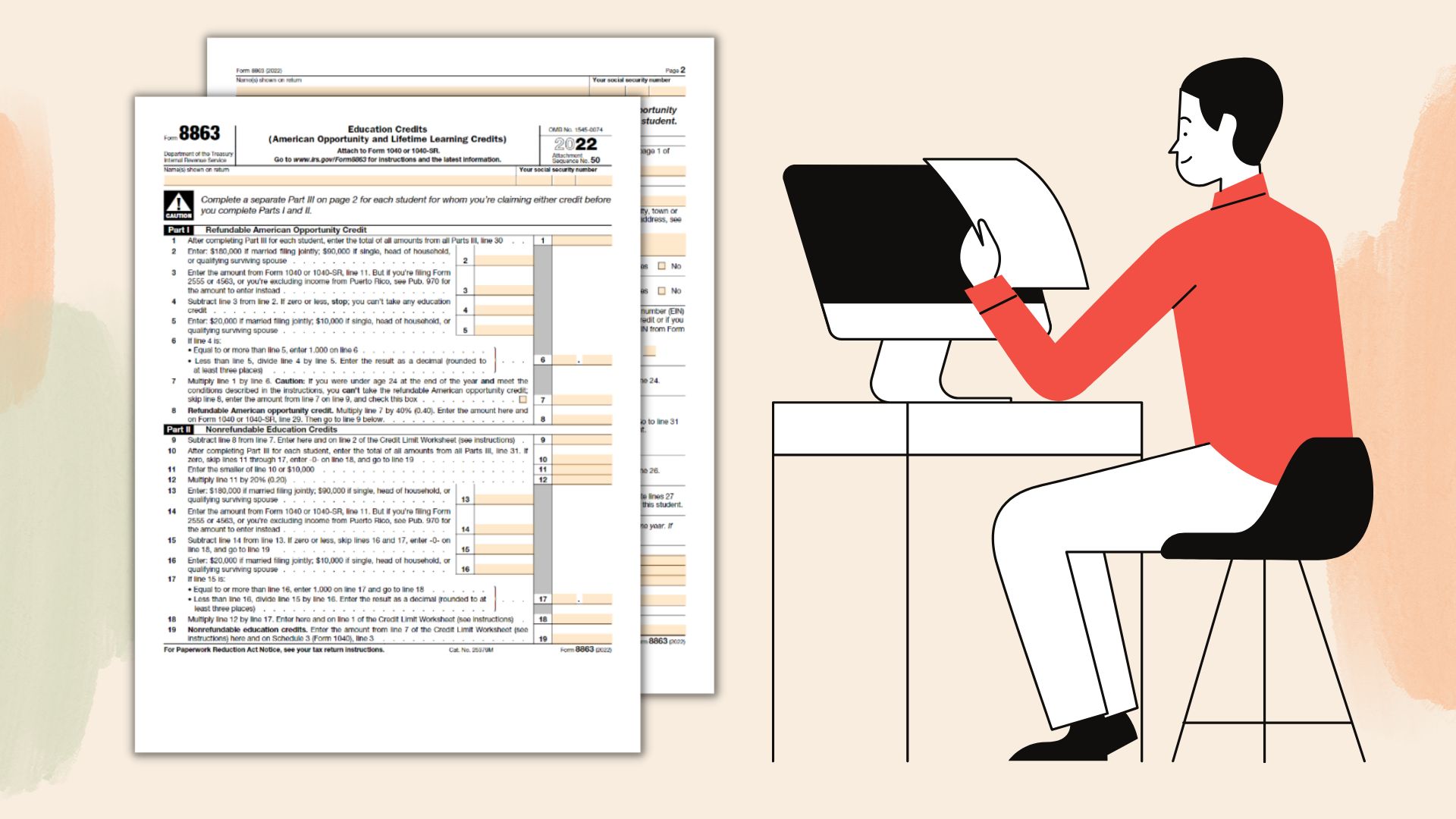

Finance
What Is An MGA Insurance?
Published: November 17, 2023
Find out what an MGA insurance is and how it can help you manage your finances effectively.
(Many of the links in this article redirect to a specific reviewed product. Your purchase of these products through affiliate links helps to generate commission for LiveWell, at no extra cost. Learn more)
Table of Contents
Introduction
Welcome to the world of MGA insurance! If you’re new to the insurance industry or simply curious about the various facets of the financial world, you might be wondering, “What is an MGA insurance?” MGA stands for Managing General Agent, and it refers to a specialized type of insurance intermediary that plays a crucial role in the insurance ecosystem. In this article, we’ll delve into the intricacies of MGA insurance, exploring its definition, roles and responsibilities, types, advantages, disadvantages, and how one can become an MGA.
MGA insurance represents a unique partnership between insurance carriers and independent agents. In this collaborative relationship, an MGA acts as an intermediary, bridging the gap between insurance providers and agents. Their primary function is to manage and underwrite insurance policies on behalf of the carrier while allowing agents to access a wide range of specialized insurance products and markets.
As the insurance landscape continues to evolve, MGAs have become increasingly important in providing access and expertise within niche insurance markets. They offer valuable support to carriers by handling various back-end tasks such as policy issuance, claims administration, risk management, and marketing. By doing so, MGAs enable carriers to focus on their core competencies while benefiting from the extended reach and market knowledge possessed by the MGA.
To better understand the role and significance of an MGA, it’s important to grasp the dynamics between the three parties involved: the insurance carrier, the managing general agent, and the independent agents. Insurance carriers rely on MGAs to enhance their distribution channels, as MGAs have established relationships with numerous independent agents. These independent agents depend on MGAs to access a broader portfolio of insurance products and to navigate the complexities of underwriting and policy administration.
Overall, the MGA insurance model offers a win-win situation for all parties involved. Carriers can expand their market presence and tap into niche segments without diverting resources to establish a direct presence. Independent agents benefit from the support, expertise, and access to diverse products that MGAs provide. And, of course, customers gain access to a wider range of insurance options tailored to their needs and preferences.
Definition of MGA Insurance
MGA insurance, also known as Managing General Agent insurance, is a specialized form of insurance intermediary that acts as a bridge between insurance carriers and independent agents. It encompasses a range of services provided by the MGA to support and facilitate the underwriting and distribution of insurance policies. In simple terms, an MGA is an entity that has been granted authority by an insurance carrier to manage certain aspects of the insurance process on their behalf.
The primary function of an MGA is to underwrite and administer insurance policies on behalf of the insurance carrier. This involves evaluating risks, setting premiums, and issuing policies to customers. The MGA essentially steps into the shoes of the carrier and assumes responsibility for policy management and distribution.
MGAs typically specialize in specific lines of insurance, such as property and casualty, marine, professional liability, or specialty lines. They have in-depth knowledge and expertise in these niche areas, allowing them to provide tailored solutions to customers and agents. MGAs often work closely with independent agents, providing them with access to a variety of insurance markets and products that would otherwise be inaccessible.
It’s important to note that the authority granted to an MGA is not the same as being an insurance company. An MGA does not bear the financial risk associated with the policies they underwrite. Instead, they act as a front-end operation for the carrier, managing the policy administration, underwriting, and claims handling.
An MGA insurance arrangement is based on a contractual agreement between the insurance carrier and the MGA. This agreement outlines the responsibilities and authorities of the MGA, including the territories they can operate in, the types of policies they can underwrite, and the applicable commission structure. It also establishes the reporting and oversight mechanisms to ensure compliance with regulatory requirements and carrier guidelines.
In summary, MGA insurance is a specialized form of insurance intermediary that empowers independent agents by providing them with access to a wider array of insurance products and markets. MGAs assume the underwriting and policy administration tasks on behalf of insurance carriers, acting as their representative in the insurance process.
Roles and Responsibilities of an MGA
The role of a Managing General Agent (MGA) in the insurance industry is multi-faceted and crucial to the smooth operation of the insurance ecosystem. Let’s explore the various roles and responsibilities of an MGA:
- Underwriting: One of the primary responsibilities of an MGA is underwriting. This involves evaluating risks, determining the terms and conditions of insurance policies, and setting the premiums. The MGA uses their expertise and knowledge in a particular line of insurance to assess the risks associated with a potential policyholder and make informed decisions on coverage.
- Policy Administration: MGAs handle the administration of insurance policies on behalf of the insurance carriers. This includes policy issuance, endorsement processing, policy maintenance, and generating necessary documentation for policyholders. They ensure compliance with regulatory requirements, carrier guidelines, and maintain accurate records of policies and coverage details.
- Marketing and Distribution: MGAs play a critical role in marketing insurance products and facilitating their distribution. They establish relationships with independent agents and educate them about the insurance products they offer. They provide training, sales support, and promotional materials to help agents effectively market the insurance policies to their clients.
- Claims Management: Another responsibility of an MGA is claims management. They handle the processing and settlement of insurance claims, ensuring a smooth and timely resolution for policyholders. They work closely with the insurance carrier’s claims department, collecting necessary documentation, investigating claims, and facilitating communication between all parties involved.
- Risk Management: MGAs assist insurance carriers in managing risk. They evaluate potential policyholders’ risks and advise on appropriate coverage options. They may also offer risk mitigation strategies, loss control services, and help develop underwriting guidelines to minimize risk exposure for the insurance carrier.
- Compliance and Regulatory Oversight: MGAs are responsible for ensuring compliance with applicable laws, regulations, and industry standards. They maintain a thorough understanding of the legal and regulatory landscape and work diligently to meet all compliance requirements. They ensure that the policies they underwrite and the practices they follow align with the regulatory guidelines governing the insurance industry.
Overall, the roles and responsibilities of an MGA encompass a wide range of functions, including underwriting, policy administration, marketing and distribution, claims management, risk management, and compliance. Their expertise and support are instrumental in facilitating the insurance process, empowering independent agents, and ensuring the smooth operation of the insurance ecosystem.
Types of MGA Insurance
Managing General Agent (MGA) insurance covers a diverse range of specialty insurance lines. MGAs are often experts in specific niches and offer specialized insurance products tailored to meet the unique needs of policyholders. Let’s explore some common types of MGA insurance:
- Property and Casualty (P&C) Insurance: P&C insurance is one of the most common types of MGA insurance. It encompasses coverage for property (such as buildings, equipment, and inventory) and liability (protection against claims of injury or damage caused by the policyholder). MGAs specializing in P&C insurance often focus on specific industries or types of risks, such as construction, hospitality, or professional liability.
- Professional Liability Insurance: Also known as Errors and Omissions (E&O) insurance, professional liability insurance provides coverage for professionals who provide services. This includes lawyers, doctors, architects, engineers, and consultants. MGAs specializing in this type of insurance understand the specific risks faced by professionals and offer coverage to protect against claims of negligence or errors in their professional services.
- Specialty Lines Insurance: MGAs often provide coverage for unique and specialized risks that may not be covered by traditional insurance carriers. These specialty lines can include insurance for events, entertainment industries, cyber liability, directors and officers liability (D&O), environmental liability, and many others. These MGAs have expertise in their respective niche markets and develop insurance products to meet the specific needs of policyholders.
- Program Business Insurance: Program business insurance refers to insurance programs designed for specific industries or groups of policyholders. MGAs partner with carriers to create customized and comprehensive insurance programs that cater to the unique risks and requirements of those insured. Program insurance can be found in various sectors, such as construction, healthcare, sports and recreation, or transportation.
- Excess and Surplus Lines Insurance: Excess and surplus lines insurance covers risks that standard insurance carriers are unwilling to underwrite due to their unique or high-risk nature. MGAs specializing in excess and surplus lines insurance work with non-admitted insurance carriers to provide coverage for policyholders who fall outside the normal parameters of admitted insurance markets. This type of insurance is often used for high-value properties, high-risk businesses, or non-traditional risks.
It’s important to note that these examples are just a snapshot of the various types of MGA insurance available. MGAs continually explore new markets and develop innovative insurance solutions to meet the evolving needs of policyholders.
By specializing in specific lines of insurance, MGAs offer a deep level of expertise and knowledge that allows them to provide customized and comprehensive coverage options to policyholders in niche markets. This specialization gives them a unique advantage in understanding the specific risks associated with these industries and effectively managing them through tailored insurance products.
Advantages of MGA Insurance
Managing General Agent (MGA) insurance offers several advantages for both insurance carriers and policyholders. Let’s explore some of the key benefits of MGA insurance:
- Specialized Expertise: MGAs often specialize in specific lines of insurance, allowing them to develop a deep understanding of the unique risks associated with those industries. This specialized expertise enables MGAs to provide tailored coverage options and risk management solutions to policyholders, ensuring they receive comprehensive protection.
- Expanded Market Access: MGAs have extensive networks of independent agents, providing insurance carriers with broader distribution channels. This allows carriers to tap into niche markets and reach policyholders who may not be easily accessible through traditional distribution channels.
- Flexibility and Customization: MGA insurance offers flexibility in underwriting and policy administration. MGAs are often able to customize policies to meet the specific needs of policyholders, providing them with coverage that fits their unique circumstances. This flexibility allows for more tailored solutions and a higher level of customer satisfaction.
- Efficiency and Cost-Effectiveness: By outsourcing underwriting and policy administration tasks to MGAs, insurance carriers can streamline their operations and reduce costs associated with these functions. MGAs are equipped with the expertise, infrastructure, and technology to efficiently manage policies on behalf of carriers, allowing them to focus on core operations and cost-effectively expand their market presence.
- Improved Risk Management: MGAs play a crucial role in assessing and managing risks associated with insurance policies. Their expertise in specific industries or lines of insurance allows them to effectively evaluate risks and implement risk mitigation strategies. This helps carriers minimize their exposure to potential losses and ensures policyholders receive appropriate coverage.
- Access to Diverse Insurance Products: Policyholders benefit from MGAs by gaining access to a wider range of insurance products. MGAs work with multiple insurance carriers and have the ability to offer diverse coverage options that meet the specific needs of policyholders, including specialized or hard-to-find coverage.
Overall, MGA insurance provides a range of advantages for both insurance carriers and policyholders. By leveraging specialized expertise, expanding market access, offering customization, increasing efficiency, improving risk management, and providing access to diverse insurance products, MGAs contribute to a more robust and responsive insurance ecosystem.
Disadvantages of MGA Insurance
While Managing General Agent (MGA) insurance has many advantages, there are also some potential disadvantages to consider. Let’s explore a few of the common drawbacks associated with MGA insurance:
- Higher Costs: Utilizing MGA insurance may result in higher costs compared to traditional insurance channels. As MGAs provide specialized expertise and customized solutions, they may charge higher premiums to cover the additional services and market access they offer.
- Dependency on MGA Performance: Insurance carriers rely on MGAs to effectively underwrite policies, manage claims, and perform other critical functions. In cases where an MGA fails to meet expectations or experiences financial instability, the carrier’s reputation and financial stability may be compromised. Therefore, choosing a reliable and reputable MGA is of utmost importance.
- Limited Carrier Control: Insurance carriers have less control over the underwriting and policy administration processes when working with an MGA. Since the MGA assumes these responsibilities, carriers must place trust in the MGA’s decision-making and management abilities. Lack of direct control may result in potential misalignment of carrier objectives and MGA actions.
- Potential Communication Challenges: With multiple parties involved (insurance carrier, MGA, and independent agents), effective communication can become complex. Lack of clear and consistent communication may lead to delays, misunderstandings, and potential friction between the parties, adversely impacting policyholder satisfaction and carrier-agent relationships.
- MGA Market Consolidation: The MGA insurance market has seen consolidation in recent years, with larger players acquiring smaller MGAs. This consolidation may reduce competition and limit the options available to insurance carriers and policyholders. It is essential for carriers and policyholders to actively monitor market dynamics to ensure a competitive and diverse MGA landscape.
- Potential Conflicts of Interest: Since MGAs act as intermediaries between carriers and policyholders, there is a potential for conflicts of interest to arise. MGAs may have incentives to prioritize certain carriers or products over others, potentially compromising policyholders’ best interests. It is crucial for carriers and policyholders to carefully evaluate the transparency and objectivity of the MGA in managing these potential conflicts.
While these disadvantages should be considered, it’s important to note that the specific challenges and drawbacks can vary depending on the individual MGA and the nature of the insurance relationship. It’s crucial for insurance carriers and policyholders to conduct thorough due diligence when selecting an MGA partner to mitigate these risks and ensure a mutually beneficial relationship.
How to Become an MGA
If you’re interested in becoming a Managing General Agent (MGA), there are several key steps you can take to enter this specialized field of insurance. Here’s a guide on how to become an MGA:
- Obtain Relevant Industry Experience: Start by gaining experience in the insurance industry. Work for an insurance company or an agency to develop a solid understanding of insurance operations, underwriting, policy administration, and sales. This experience will provide the foundation for your future role as an MGA.
- Acquire Insurance Licensing and Education: Depending on your location, you may need to obtain insurance licensing to pursue a career as an MGA. Research the specific licensing requirements in your jurisdiction and complete the necessary education courses and exams. This will ensure that you have the legal authority to transact insurance business.
- Develop Expertise in a Niche Market: Focus on developing expertise in a specific line of insurance or niche market. Gain in-depth knowledge of the risks and challenges associated with that particular industry or specialty. This specialization will set you apart from competitors and enable you to provide valuable insights and tailored insurance solutions to potential policyholders.
- Establish Relationships with Insurance Carriers: Build relationships with insurance carriers that operate within your chosen niche market. Reach out to them, express your interest in becoming an MGA, and showcase your expertise and value proposition. Establishing strong partnerships with carriers is crucial for securing underwriting authority and accessing the insurance products necessary to serve policyholders.
- Create a Business Plan: Develop a comprehensive business plan outlining your MGA operation. This plan should include details about your target market, marketing strategies, risk management techniques, operating procedures, and financial projections. A well-structured business plan will not only guide your MGA’s growth but also demonstrate your preparedness to carriers and potential investors.
- Obtain Necessary Licensing and Appointments: Once your business plan is in place and carrier partnerships are established, work towards obtaining the required insurance licenses and carrier appointments. Carriers will appoint you as an MGA by granting you the authority to underwrite and administer policies on their behalf. Seek the necessary contracts and agreements to formalize your relationship with the carriers.
- Invest in Technology and Infrastructure: As an MGA, it is essential to have robust technology and systems in place to efficiently manage underwriting, policy administration, claims handling, and other business operations. Invest in insurance-specific software, data management tools, and infrastructure to streamline your processes and provide top-notch service to your policyholders.
- Network and Build Relationships: Actively network with industry professionals, attend insurance conferences, and join industry associations. Building a strong network of contacts within the insurance community will not only enhance your industry knowledge but also open doors to potential carrier partnerships and referrals from independent agents.
- Maintain Regulatory Compliance: Stay updated with the latest regulatory requirements and comply with all licensing and reporting obligations. Adhere to industry best practices, ethical standards, and applicable laws to maintain a credible and trustworthy image as an MGA.
Remember, becoming an MGA requires a combination of industry knowledge, expertise, relationships, and dedication. It is a journey that requires continuous learning, adaptability, and commitment to serving the needs of policyholders in your chosen market.
Conclusion
Managing General Agent (MGA) insurance plays a critical role in the insurance industry, providing specialized expertise, expanded market access, and tailored insurance solutions. MGAs bridge the gap between insurance carriers and independent agents, facilitating the underwriting and distribution of insurance policies in niche markets. They bring value to the insurance ecosystem by offering expertise in specific lines of insurance, allowing carriers to tap into new markets and providing policyholders with diverse coverage options.
Throughout this article, we’ve explored the definition of MGA insurance, the roles and responsibilities of an MGA, the types of MGA insurance available, as well as the advantages and disadvantages associated with this insurance model. We’ve also discussed the steps involved in becoming an MGA, highlighting the importance of industry knowledge, relationships with carriers, specialized expertise, and adherence to regulatory compliance.
While MGA insurance presents challenges, such as potential higher costs and limited carrier control, its benefits are significant. Insurance carriers benefit from the expertise and expanded distribution channels that MGAs provide, while policyholders gain access to specialized coverage and tailored solutions to meet their unique needs.
As the insurance industry continues to evolve, MGAs will remain a vital component of the ecosystem. Their ability to adapt to changing market dynamics, embrace innovative technologies, and foster strong relationships with carriers and independent agents will be crucial to their success.
In conclusion, Managing General Agent (MGA) insurance offers a valuable and specialized approach to insurance intermediation. It empowers carriers to access niche markets, provides independent agents with diverse insurance products, and offers policyholders tailored coverage options. As the insurance landscape evolves, the role of MGAs will continue to grow, shaping the future of the insurance industry.














